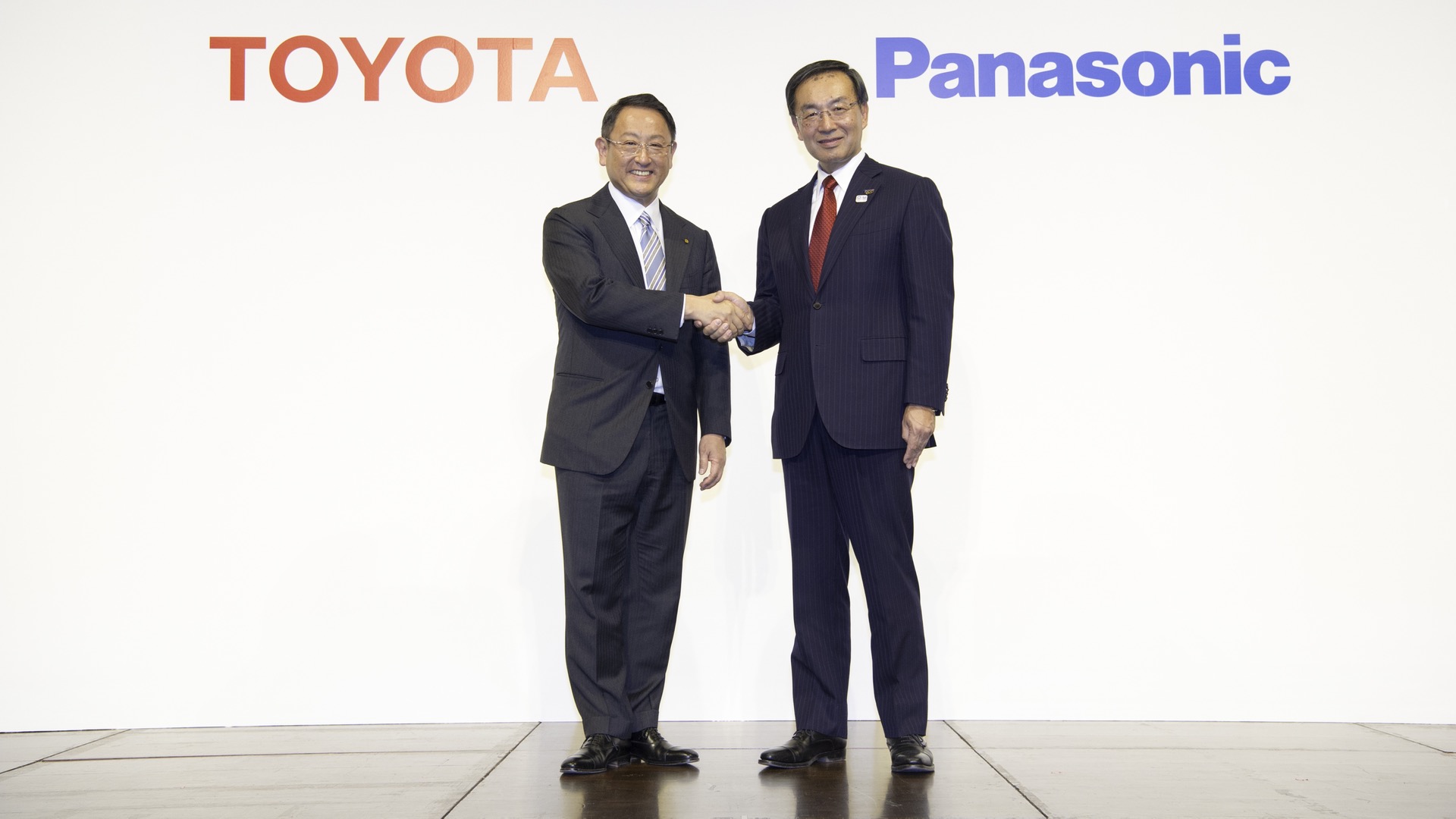

Toyota and electric vehicle (EV) battery supplier Panasonic have reportedly moved past the rumored exploration stage of forming a venture to jointly manufacture EV batteries. This comes in reaction to looming Chinese competition, and the two are laying the groundwork for the company with a possible announcement of the venture reportedly due this week.
Reportedly, this venture will be primarily Toyota-owned, to the tune of 51 percent, while Panasonic will own the other 49 percent, according to Reuters. Batteries manufactured by the company will allegedly power a large portion of the one million Toyota EVs and fuel-cell electric vehicles (FCEVs) that the company hopes to sell by 2030. Additionally, some of these batteries could reportedly make their way into vehicles manufactured by Toyota’s partners Subaru and Mazda.
Toyota and Panasonic announced a partnership in 2017 to pursue prismatic-cell batteries, which boast greater energy density than cylindrical-cell batteries, the likes of which are used by Panasonic in the batteries it sells to Tesla. Both companies reportedly acknowledged this partnership alone when contacted by Reuters regarding the extent of their cooperation.
Panasonic is currently the sole battery supplier for Tesla Motors but reportedly wishes for independence from the automaker, as Tesla hopes to source cells for its Chinese-built vehicles from local suppliers as well as Panasonic. The company also hopes to find cobalt-free alternatives to lithium-ion batteries, due to both the scarcity of cobalt and the fact that much of the world’s supply comes from the Congo, where it is often children that mine the material.
One successor to lithium-ion could be solid-state batteries, which have greater energy density and lesser risk of fire, though a Panasonic executive has predicted that this technology is at least a decade away from being commercially viable.